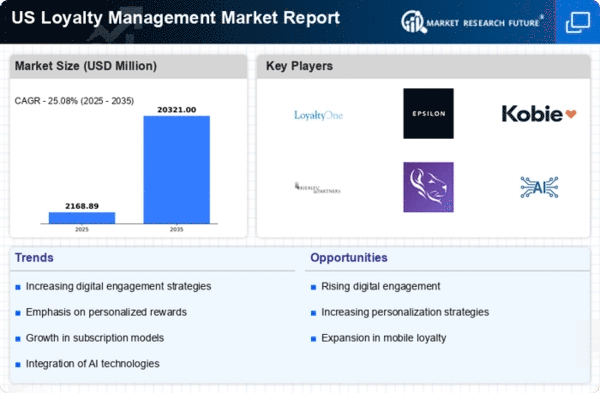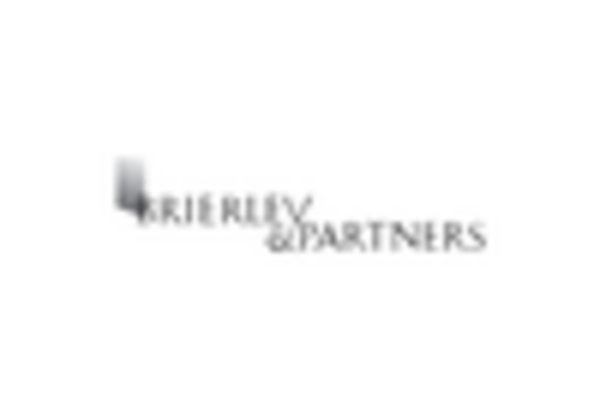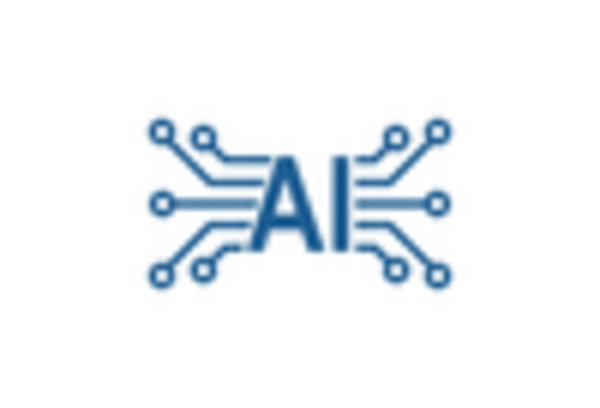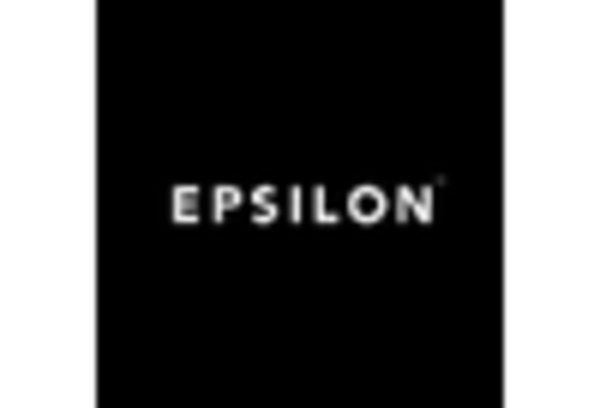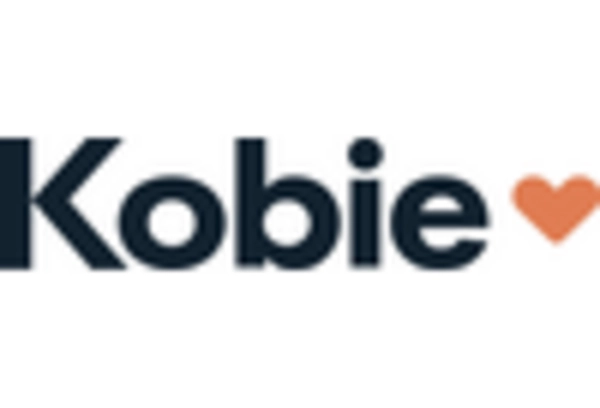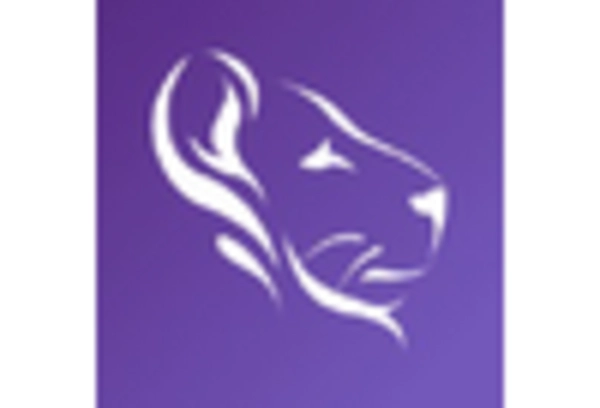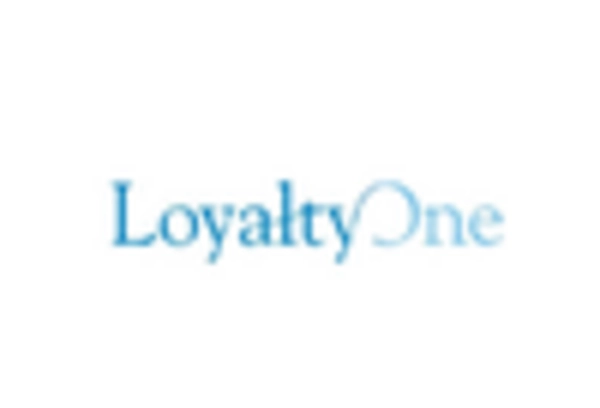Emergence of Data Analytics
The loyalty management market is increasingly influenced by the emergence of data analytics, which allows businesses to gain insights into customer behavior and preferences. By leveraging advanced analytics, companies can tailor their loyalty programs to meet the specific needs of their customers. This trend is evident as organizations invest in analytics tools, with the market for data analytics projected to reach $274 billion by 2022. Such investments enable businesses to enhance customer engagement and retention, ultimately driving growth in the loyalty management market. Furthermore, the ability to analyze customer data in real-time allows for more agile decision-making, which is crucial in a competitive landscape. As companies continue to harness the power of data analytics, This market is likely to see a significant transformation, with more personalized and effective loyalty strategies being implemented.
Shift Towards Omnichannel Strategies
The loyalty management market is experiencing a shift towards omnichannel strategies, where businesses aim to provide a seamless customer experience across various platforms. This approach is essential as consumers increasingly interact with brands through multiple channels, including online, mobile, and in-store. According to recent studies, 73% of consumers prefer to engage with brands through multiple channels, highlighting the need for businesses to adapt their loyalty programs accordingly. By integrating loyalty initiatives across all touchpoints, companies can enhance customer satisfaction and foster brand loyalty. This trend is particularly relevant in the retail sector, where the loyalty management market is projected to grow at a CAGR of 15% from 2021 to 2026. As businesses embrace omnichannel strategies, they are likely to see improved customer retention rates and increased revenue, further propelling the loyalty management market forward.
Growing Importance of Customer Feedback
The loyalty management market is increasingly recognizing the growing importance of customer feedback in shaping loyalty programs. Businesses are now prioritizing the collection and analysis of customer opinions to refine their offerings and enhance customer satisfaction. This trend is underscored by the fact that 80% of consumers are more likely to engage with brands that actively seek their feedback. By incorporating customer insights into loyalty strategies, companies can create more relevant and appealing programs that resonate with their target audience. This focus on customer feedback not only strengthens brand loyalty but also drives innovation within the loyalty management market. As organizations continue to adapt their programs based on customer input, they are likely to see a positive impact on customer retention and overall business performance.
Increased Investment in Loyalty Technology
The loyalty management market is witnessing increased investment in loyalty technology, as businesses recognize the need for robust systems to manage and optimize their loyalty programs. This trend is driven by the desire to enhance customer engagement and streamline operations. According to industry reports, the loyalty technology market is expected to grow by 20% annually, reaching $10 billion by 2025. Companies are investing in platforms that offer advanced features such as mobile applications, gamification, and personalized rewards. These technological advancements enable businesses to create more engaging and effective loyalty programs, ultimately leading to higher customer retention rates. As organizations continue to prioritize technology in their loyalty strategies, the loyalty management market is likely to experience significant growth and innovation.
Emphasis on Sustainability and Ethical Practices
The loyalty management market is increasingly emphasizing sustainability and ethical practices, as consumers become more conscious of their purchasing decisions. Businesses are recognizing that aligning loyalty programs with sustainable values can enhance brand loyalty and attract environmentally conscious customers. Research indicates that 66% of consumers are willing to pay more for sustainable brands, suggesting a strong market potential for companies that prioritize ethical practices. By integrating sustainability into their loyalty initiatives, businesses can differentiate themselves in a crowded marketplace and foster deeper connections with their customers. This trend is particularly relevant in industries such as retail and food services, where the loyalty management market is adapting to meet the demands of socially responsible consumers. As sustainability becomes a core component of loyalty strategies, the market is likely to evolve, reflecting changing consumer values.


